We some loud people (for good reason too)
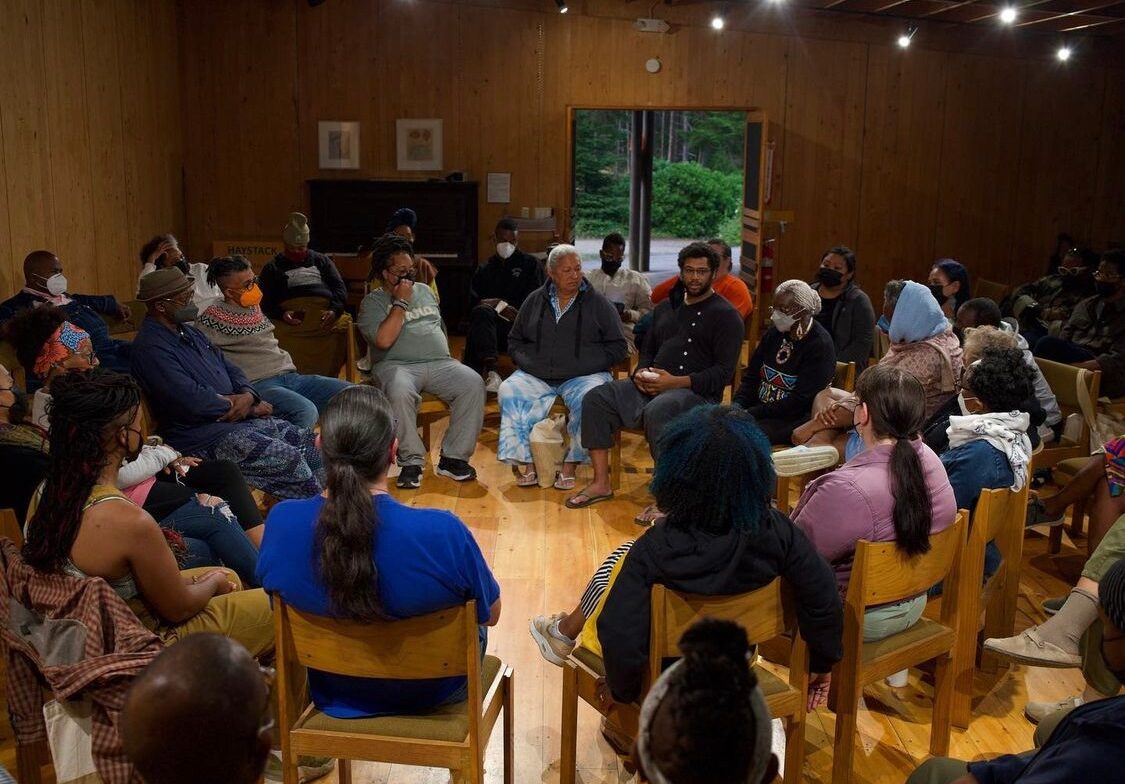
A “Stop, Drop, and Flow” session was led every morning by Keita Whitten Foster. Basically yoga, but I appreciate that it wasn’t called yoga. That term makes some folk say “Nah, that ain’t me.” But we were really flowing. Dancing. Stretching. Sighing. And literally yelling. Getting it out. And I left every single session feeling so much more open and ready for the day.
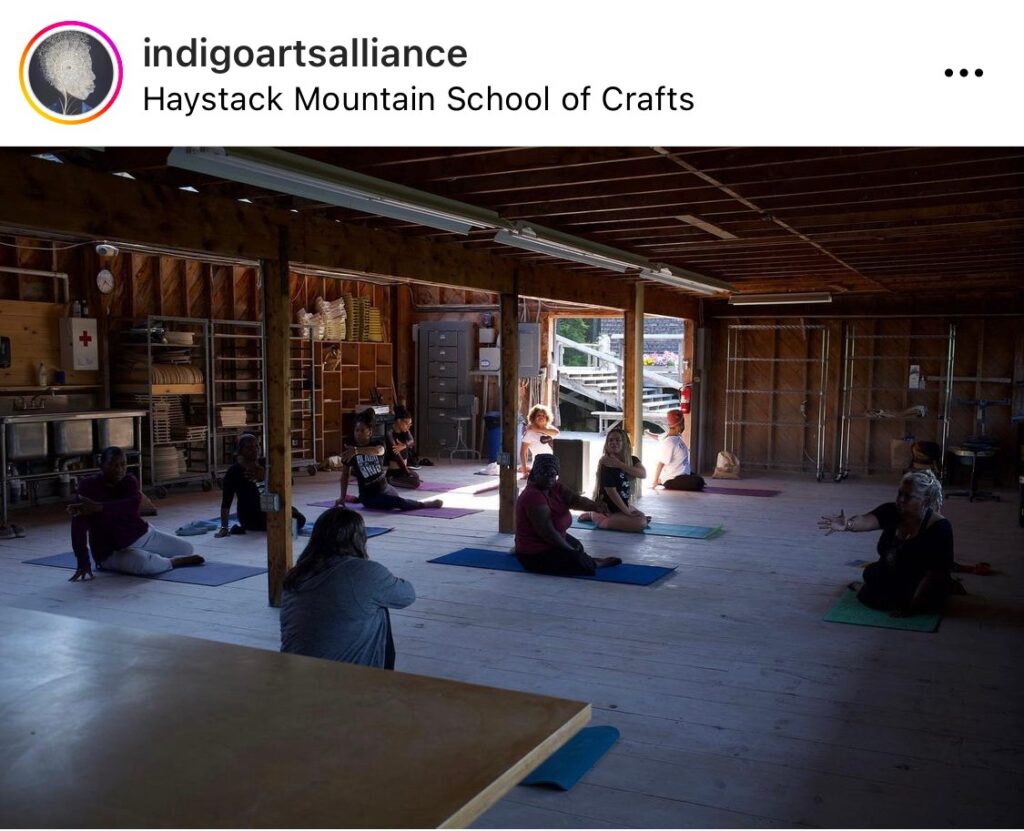
One of the writing workshops, led by Arisa White, got us being loud too.
She had us start off with a question that’s been lingering on our minds then rearrange the letters of the questions then sound it out. Mine went from: “How will I be changed after this retreat?” to “Howl bia chandifer aieta trisea?” And we repeated our sounds over and over again, together like a chorus. Then we shortened it. Mine became: “Cheo.”
By the time we were finished, after including sound and movement in that thang, we all had answered our own question. Click here to learn more about that workshop.
Then there was a workshop by Sonya Clark, one of my favorite visual artists. I fell in love with her series that involved black hair and flags. Well, she led a beading workshop. Did you know that the word “bead” means prayer? We wrote questions or statements to our ancestors, folded into a cloth, then sewed beads around it. It was so much a beautiful practice. So sacred. I thought about the Mardi Gras Indians, who spend all year beading their suits and how meditative that must be.
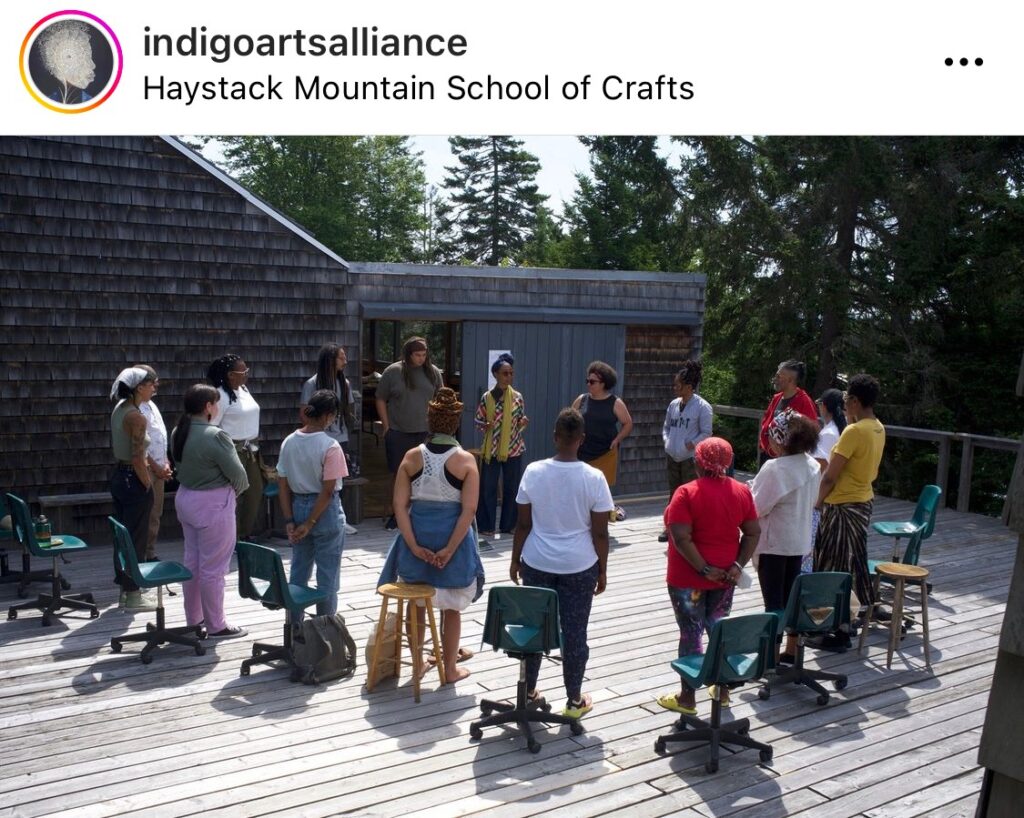
That mfn “Come By Here” singing/praying workshop by Imani Uzuri was something else.
Started off singing “Come By Here, My Lord,” an old black folks’ spiritual that was sung back then like “Kumbaya.” From there, she had someone throw out a line. Then we created a harmony for it. Kept working at it ’til it sounded right. Eventually added two more lines, and that thang felt like church.
So many conversations around the voice came up after that workshop. More than half of us felt like we weren’t good singers. Imani repeated that our voices are our own, because we need them. We need its exact tone. It’s healing to us. It’s a literal vibration. It serves us differently when we’re loud, when we hum, when we sing, etc. Use it.
That took me back to my grandmother’s Baptist church.
It didn’t matter how you sounded, because we all joined in anyway. My granddaddy who couldn’t sing worth a lick used to sing “This Little Light of Mine,” and he did all of one line by himself before everybody started singing along. We shouted “amen” and “hallelujah” while the preacher preached. We caught the holy ghost. We were LOUD! I remember switching to a nondenominational church with my mom. While I appreciated the shorter services, everything was so orderly and “neat” ’til it felt weird. It felt white, to be honest.
It also made me think of a client that I’m ghostwriting for right now. He said that it’s hard being a black person working in Corporate America because your real self ain’t welcomed. You have to monitor how loud you laugh, how many curls are in your accent, how bold the colors you wear are, and how to defend yourself (so as not to get security called).
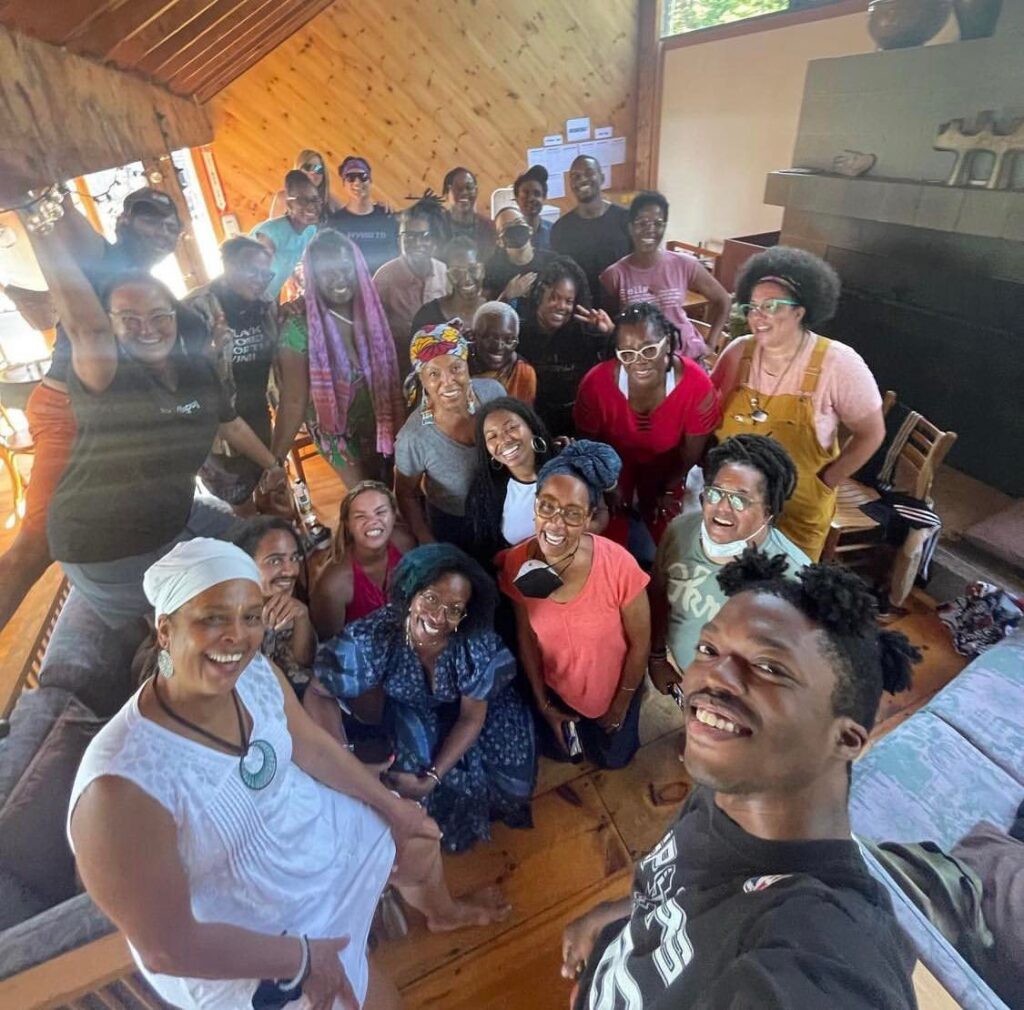
How has society quieted you down?
If I’m singing in the park, I get quiet when someone passes then rev back up when they’re gone. I ain’t doing that no more.
When I’m doing my yoga, I don’t care if it’s a public class or an at-home session, I’m exhaling loud and moaning when I need to. That sound moves tightness and tension out the body.
I’ma go back to praying out loud instead of in my head.
And I’ma carve out more time for my chi’ren to be loud during #KrakTeet4Kids workshops, because that’s who we are as people. We are loud, and for good reason. And we’re in our bodies. And we heal together, not by ourselves. That’s how we grow too. We need that village of voices. That’s our support.
Everyday of the retreat began and ended in a circle, and I love that so much.


